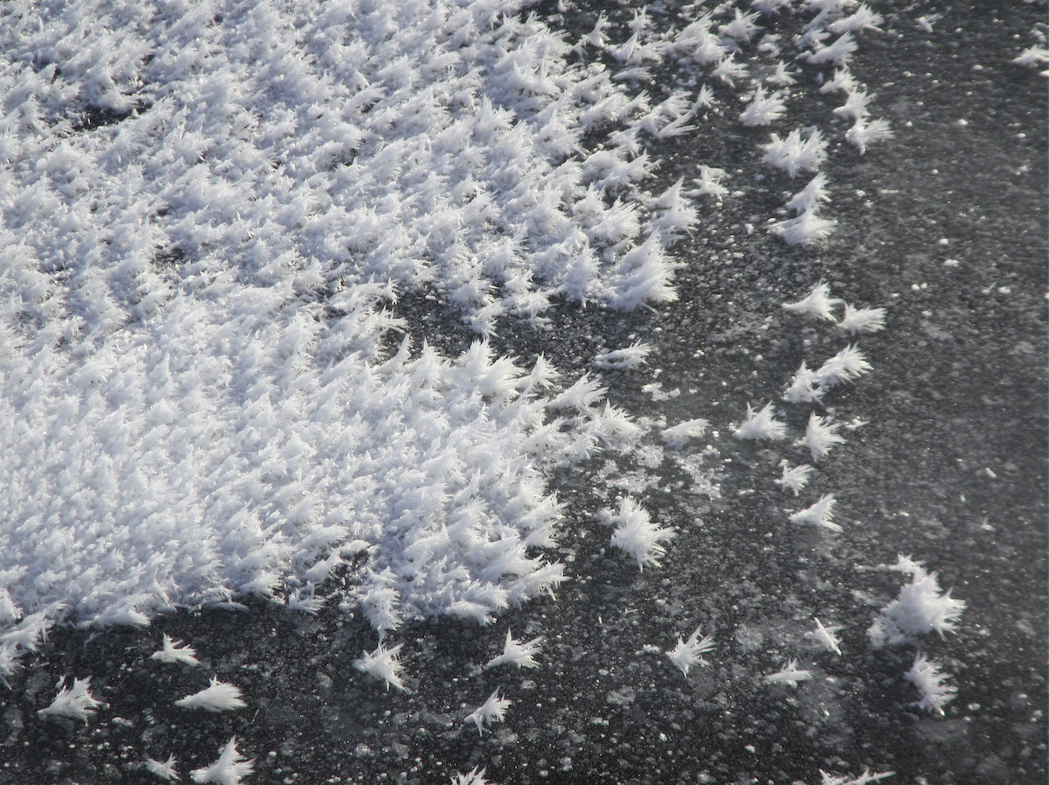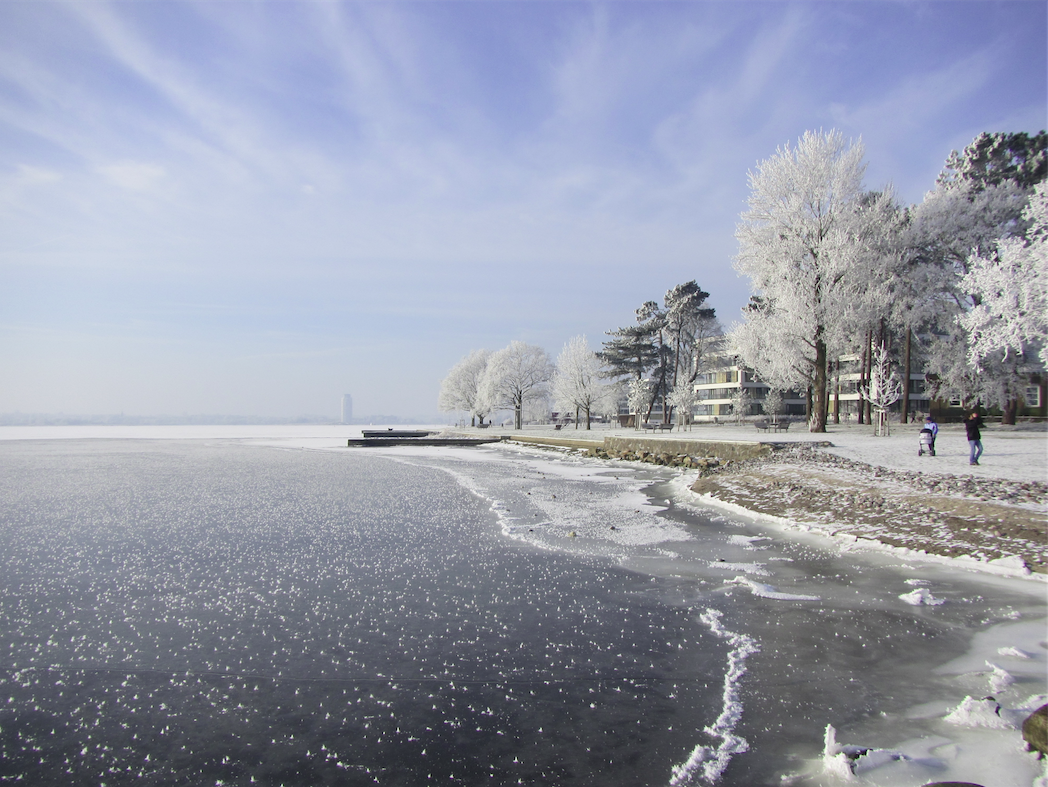
Frost flowers – when water vapour freezes to ice without going through the liquid phase. Examples “at sea”
Frost flowers! I learned about those in the context of Arctic and Antarctic ice formation. I kinda assumed that ice flowers only formed in salt water, because I remember hearing about how the ice needles that form wick up brine and that, due to their large surface (which you will remember noticing in the last post where […]
